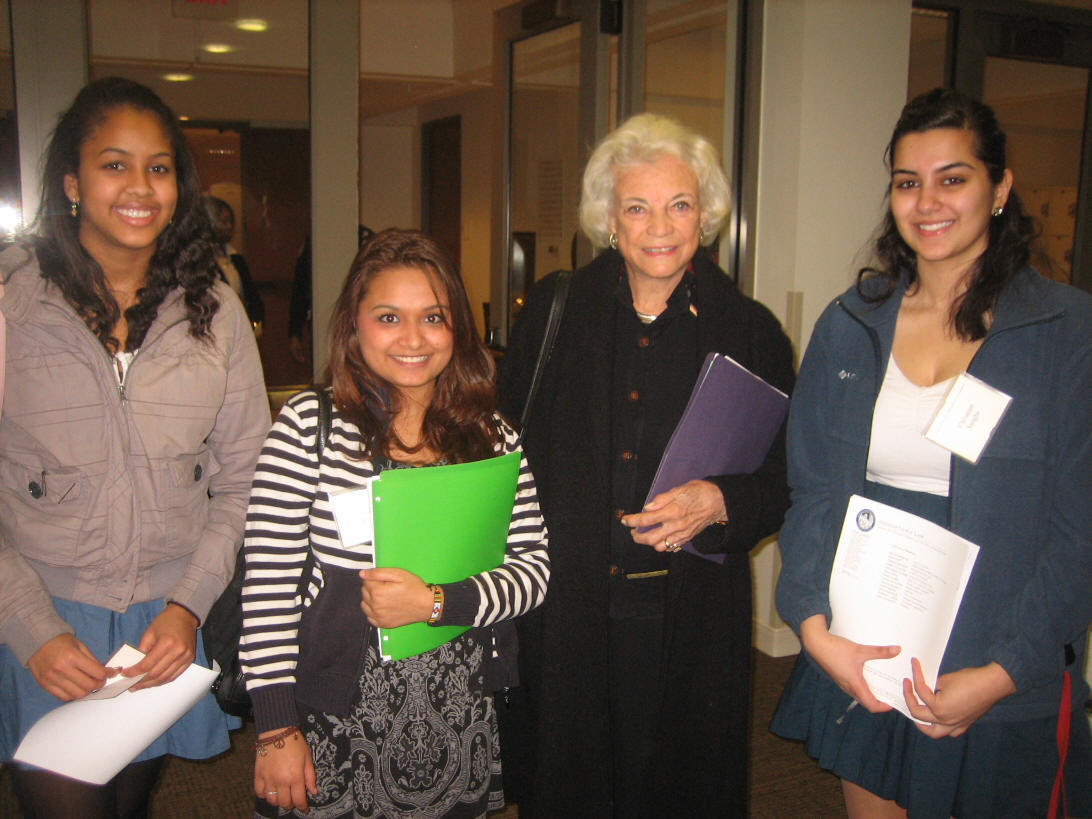
Political Science Students Attend Law Symposium at Georgetown Law Center

Shayma, Aakriti and Christeen meet with former Supreme Court Justice Sandra Day O'Connor prior to attending a seminar on recent supreme court decisions and their effect on choosing state judges. The students and Justice O'Connor discussed new Justice Sonia Sotomayor, Arizona's colorful political figures over the years and Justice O'Connor's Our Courts Judicial and Civics Education project.
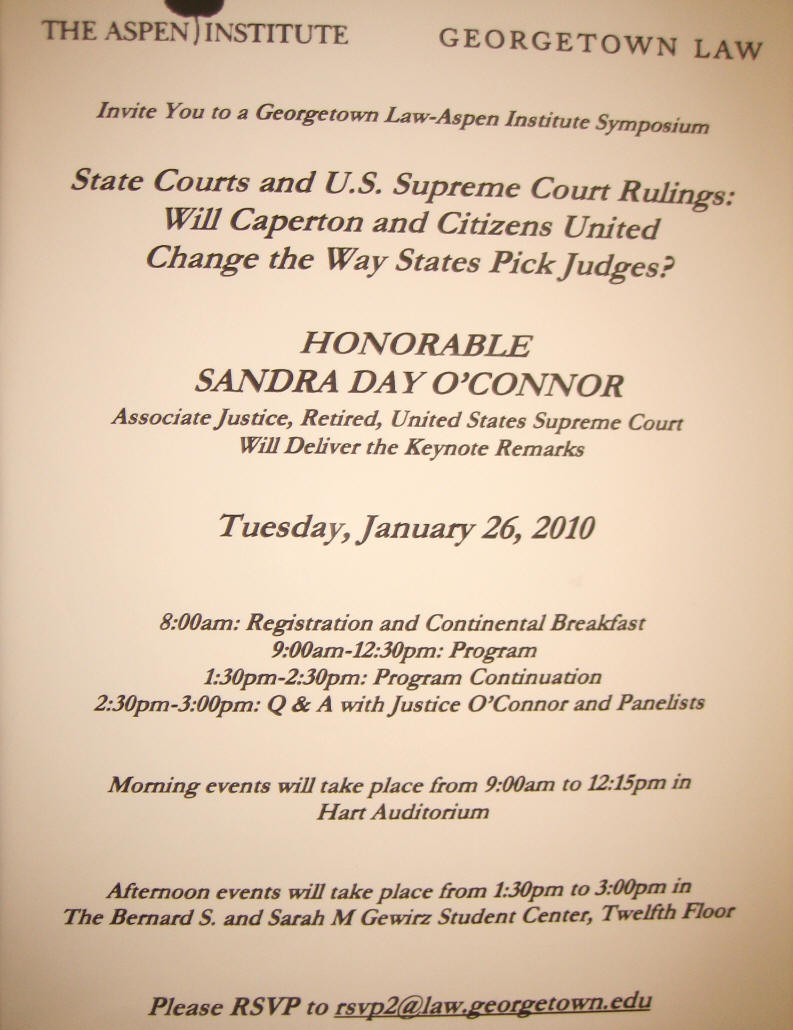
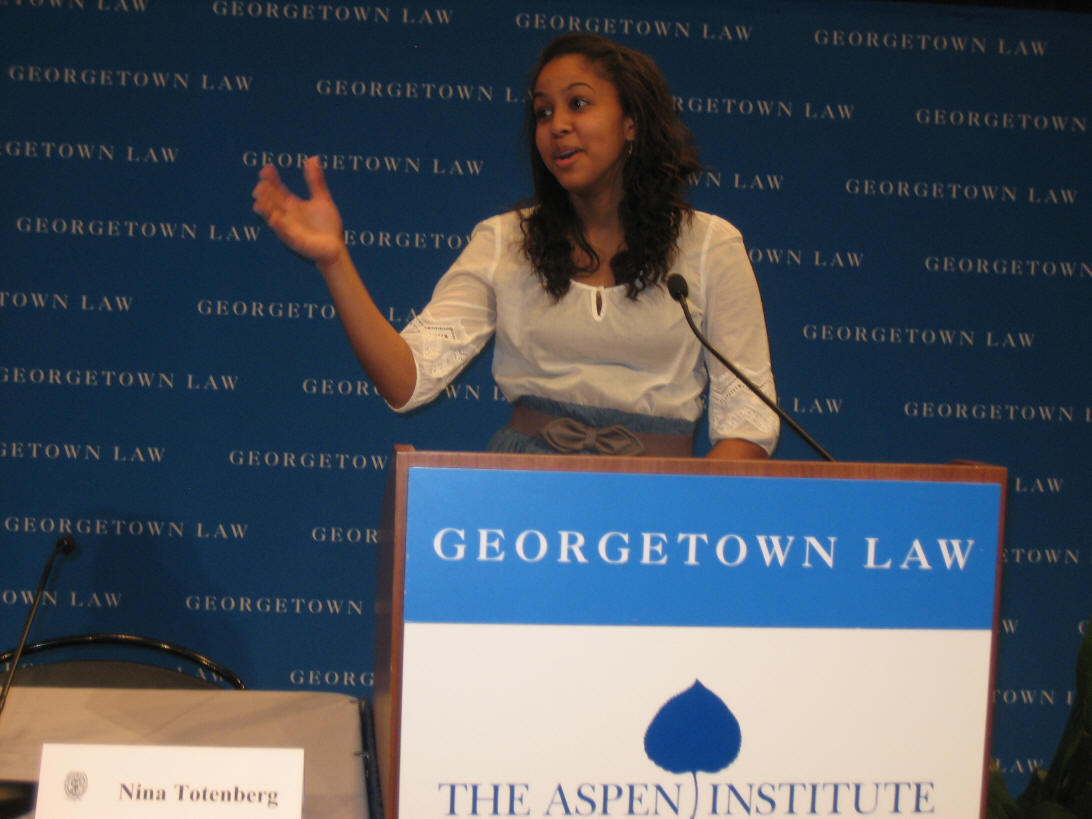
Shayma- Passionate About The Law!
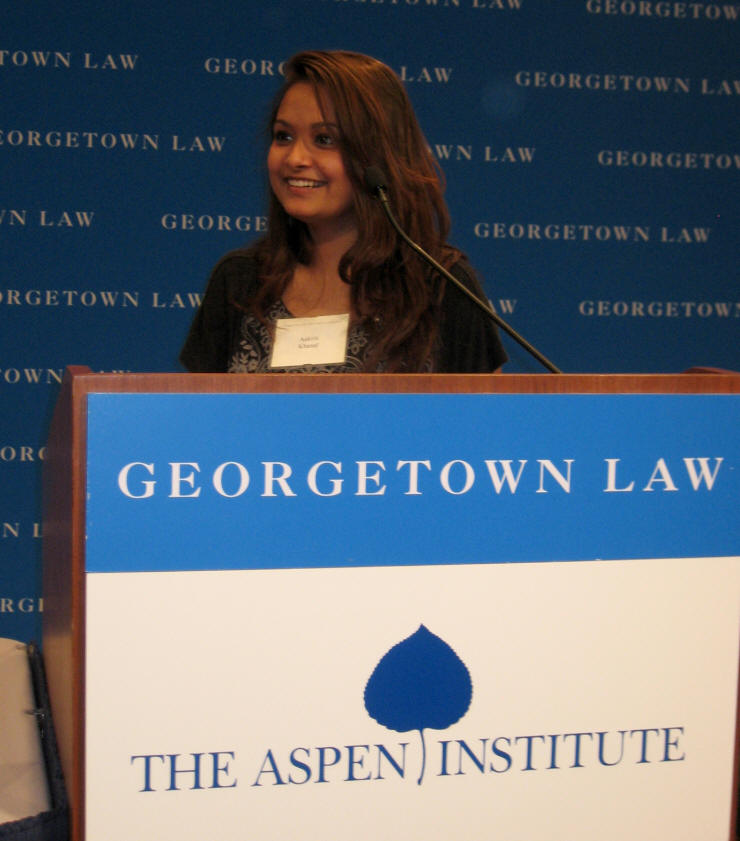
Aakriti Ponders Our Judicial System
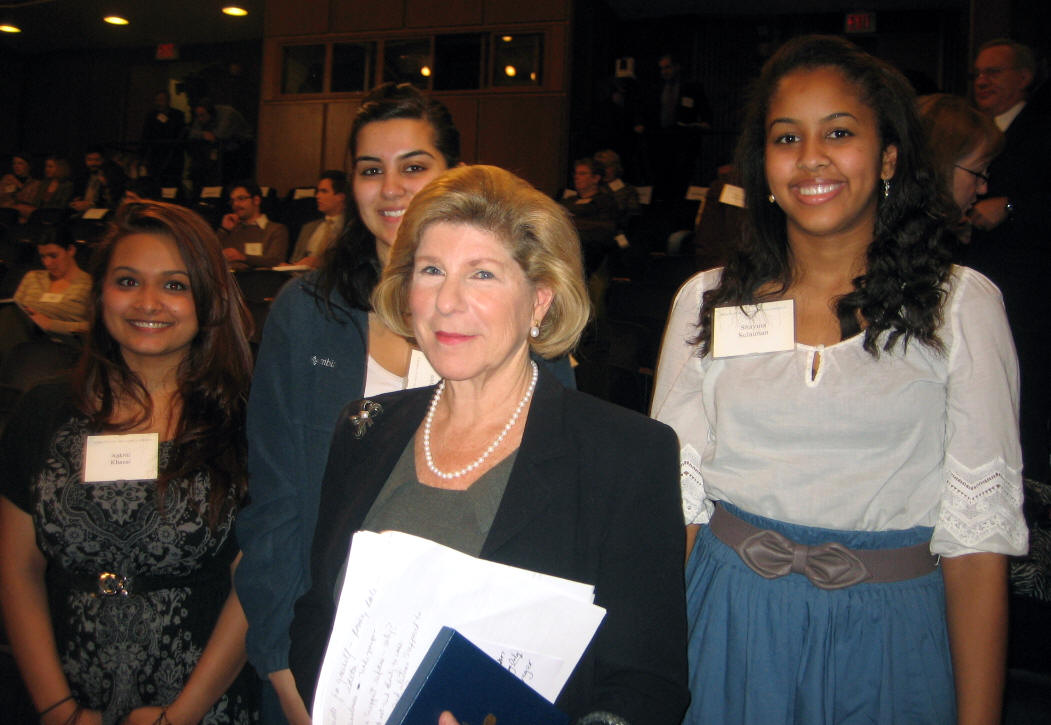
Students with Nina Totenberg, Legal Affairs Correspondent, National Public Radio and panelist on WUSA's "Inside Washington."
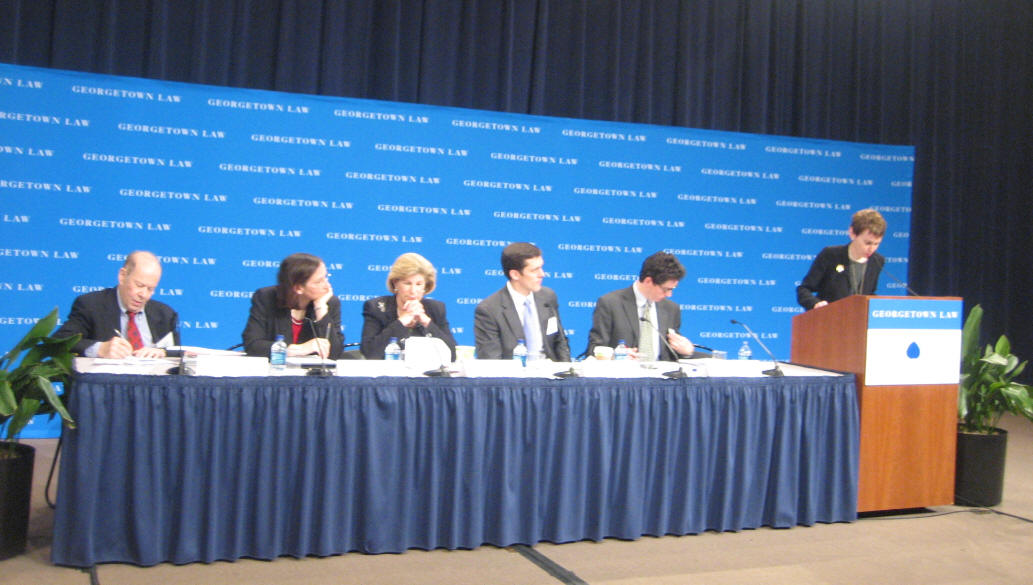
Caperton v. Massey Coal and the Recusal of State Court Judges
Meryl Chertoff, Co-Director of the Justice and Society Program, The Aspen Institute introduces the first panel: Bert Brandenburg, Executive Director, Justice at Stake Campaign, Carte Goodwin, Partner, Goodwin & Goodwin, PC; Chair, West Virginia Independent Commission on Judicial Reform, Pamela Karlan, Kenneth and Harle Montgomery Professor of Public Interest Law, Stanford Law School, Roy Schotland, Professor Emeritus, Georgetown University Law Center. Moderator: Nina Totenberg
Pamela Karlan- "People have to realize judges can make unpopular decisions and still be great judges."
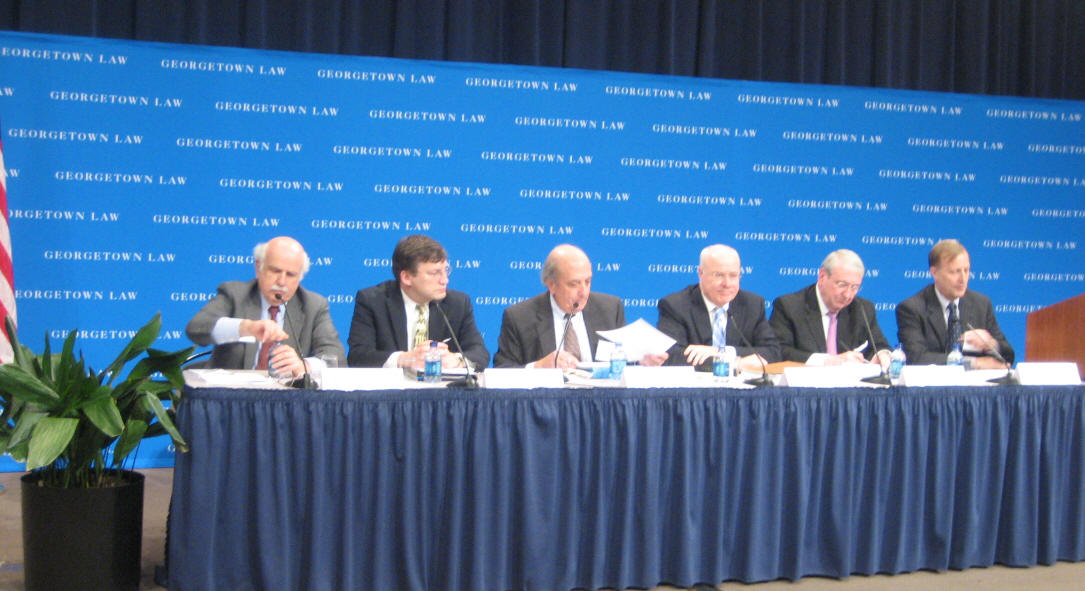
Citizens United and the Election of State Court Judges
Jan
Baran, Partner, Wiley & Rein, LLP, Karl Sandstrom, Of Counsel, Perkins Coie,
Bradley A. Smith, Josiah H. Blackmore II/Shirley M.Nault Designated
Professor of Law, Capital University Law School, H. Thomas Wells, Jr., Immediate
Past President, American Bar Association, Fred Wertheimer, President, Democracy
21- Moderator: Tony Mauro, Supreme Court Correspondent, National Law Journal
Bradley Smith- "Disclosure is for citizens to monitor the government, not for the government to monitor citizens."
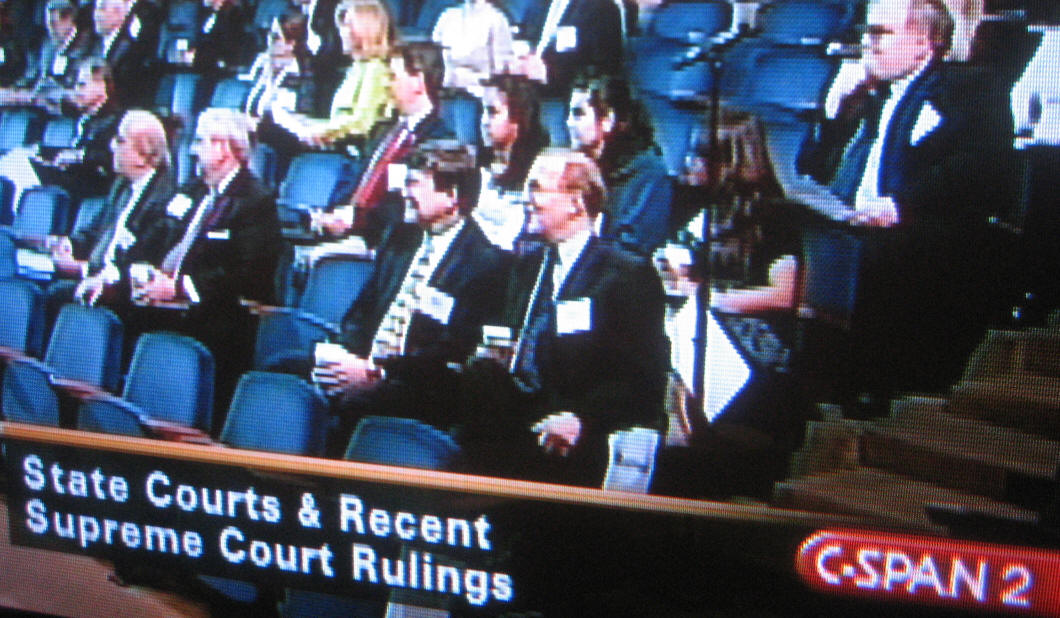
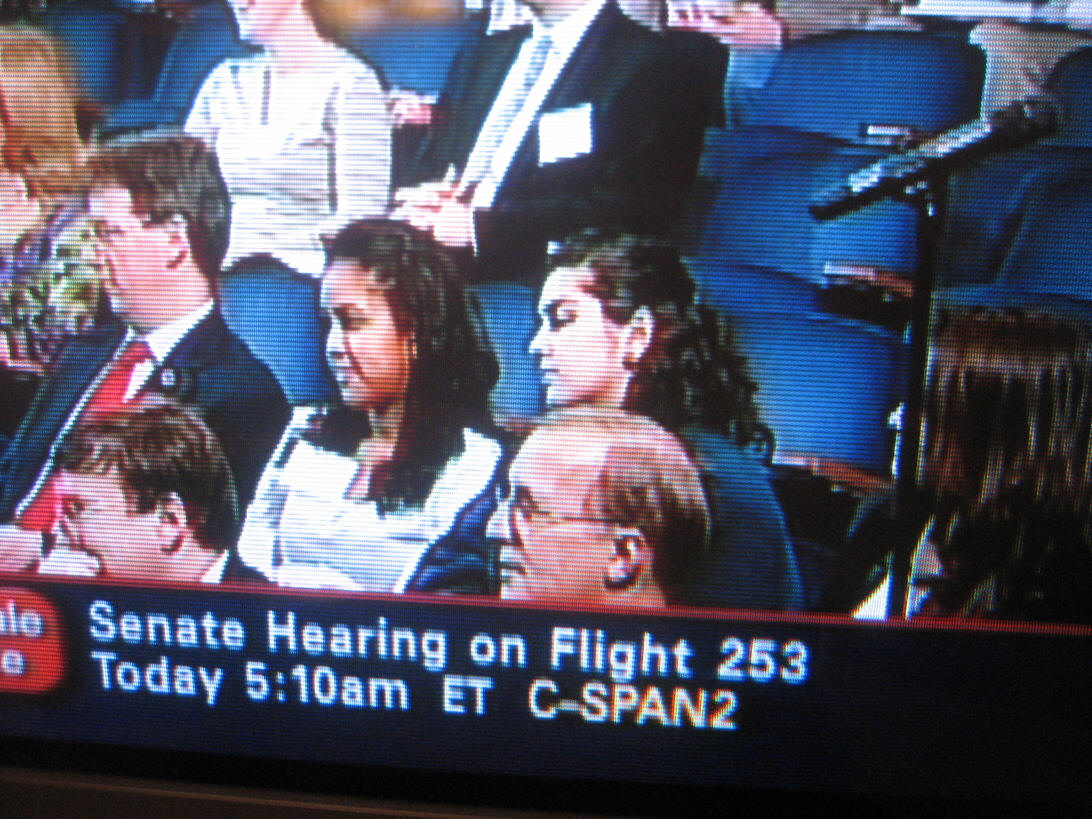
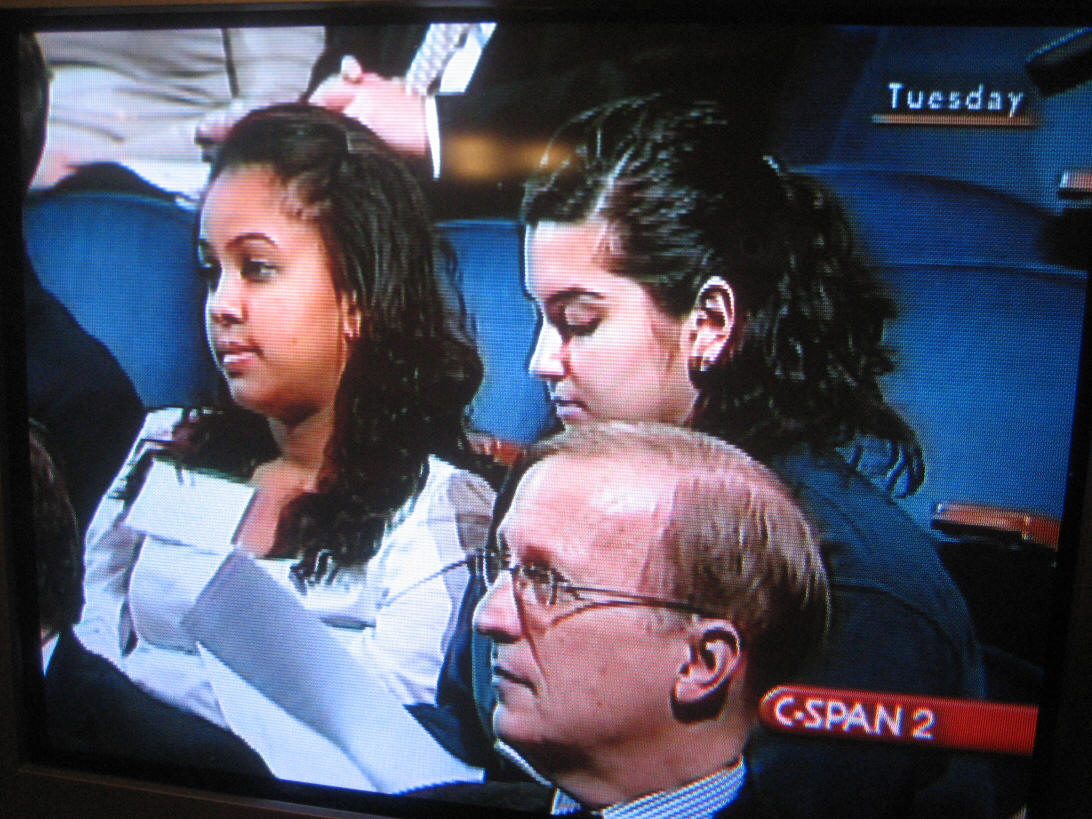
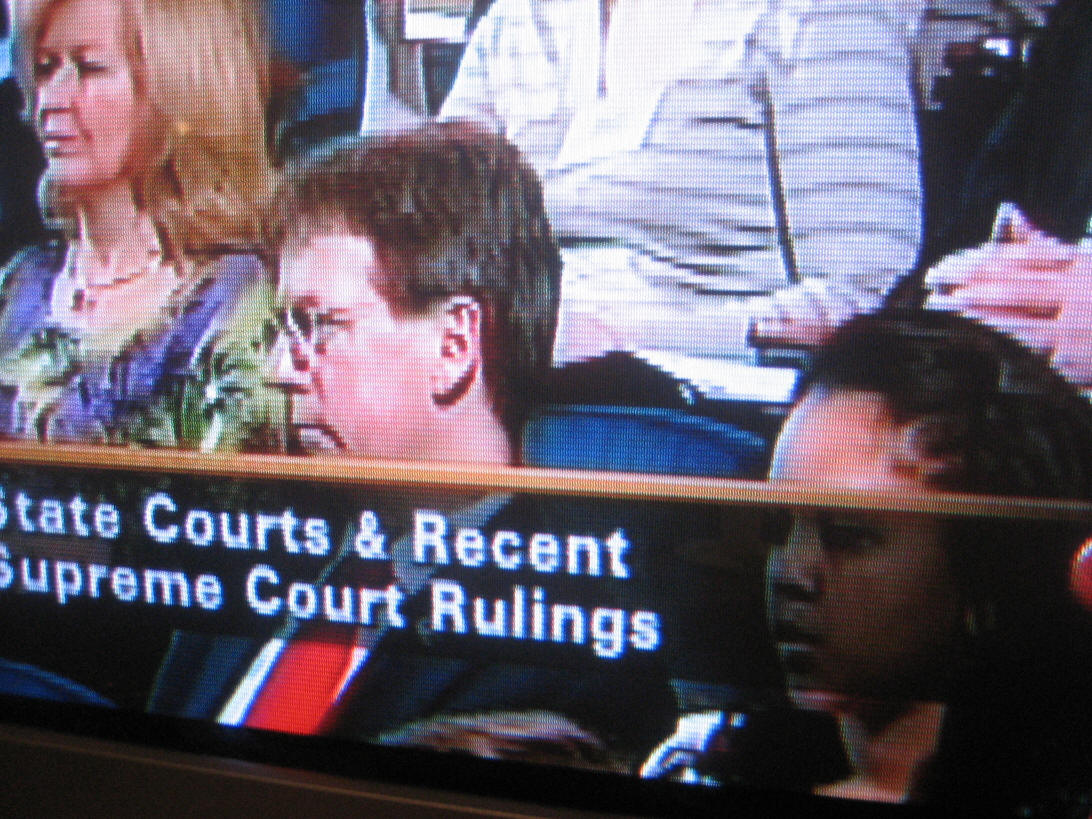
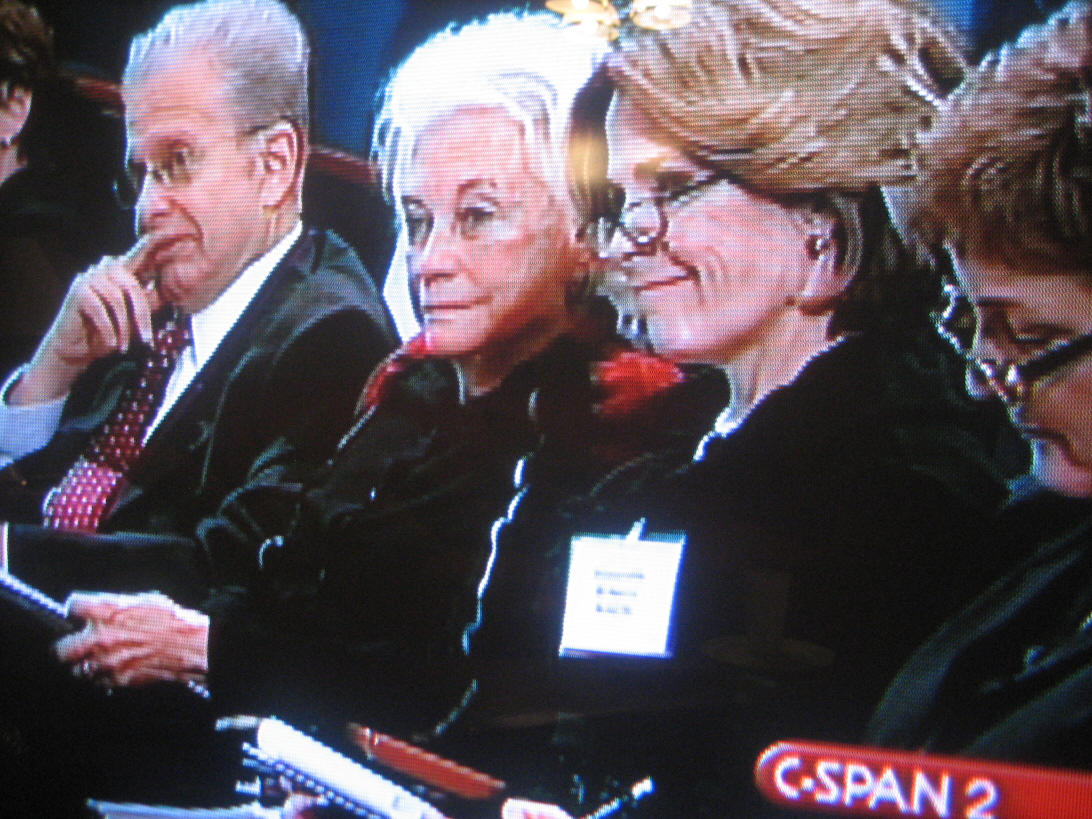
By Robert Barnes
Washington Post Staff Writer
Tuesday, January 26, 2010; 6:50 PM
Retired justice Sandra Day O'Connor said last week's Supreme Court decision striking down restrictions on corporate spending in elections will energize an "arms race" in judicial elections and be a "problem for maintaining an independent judiciary."
Since leaving the court in 2006, O'Connor has campaigned against the election of state and local judges, and she said Tuesday that "increasingly expensive and negative campaigns for judicial office erode both the impartiality of the judiciary and the public perception of them."
O'Connor lent her voice to the reverberations from the decision in Citizens United v. Federal Election Commission, which overturned two of the court's precedents and swept away decades of restrictions on how corporations and other special interest groups could spend their general treasuries on behalf of candidates.
President Obama and congressional Democrats have lambasted the decision, and tried to turn what could be a disastrous political problem for them into a rallying cry for their supporters. Activists and experts on both sides of the issue continue to debate its potential for change. And critics of the sweeping decision have used it to denounce what they say is an "activist" conservative majority on the court, with a particular emphasis on Chief Justice John G. Roberts Jr., who they say betrayed his promise of narrow decisions that avoid constitutional confrontations.
O'Connor confined her remarks about the decision to the affect it will have on the overwhelming number of states and localities that elect judges. Federal judges are nominated by the president and confirmed by the Senate.
"In invalidating some of the existing checks on campaign spending, the majority in Citizens United has signaled that the problem of campaign contributions in judicial elections might get considerably worse and quite soon," O'Connor said at a symposium at Georgetown Law Center. She noted that each election cycle brings new spending records, especially in state supreme court races that have become special-interest battlegrounds.
O'Connor declined to directly criticize the decision, although she pointed out that one of the abandoned precedents was the court's 2003 decision in McConnell v. FEC, which upheld the constitutionality of the restrictions in the McCain-Feingold campaign finance reform act of 2002.
"Since I was one of several authors of that opinion," she said, "if you want my legal opinion, you can go read it."
It was the replacement of O'Connor by Justice Samuel A. Alito Jr. that moved the court from a 5 to 4 majority approving the restrictions to a 5 to 4 majority striking them as unconstitutional.
She joked at the beginning of her speech: "Gosh, I step away for a couple of years and there's no telling what's going to happen."
The symposium at Georgetown, sponsored with the Aspen Institute, looked at the fallout from Citizens United and a case the court decided last year, Caperton v. A.T. Massey Coal Co. In Caperton, the court decided 5 to 4 that a West Virginia supreme court justice whose candidacy was aided by millions of dollars from a coal mining executive should have recused himself when the executive had a case before the court.
"I think these two cases should be a warning to states that continue to choose their judges through popular elections," O'Connor said.
She said the escalating campaigns will only make the judiciary more susceptible to special interests.
"I think today we can anticipate that labor unions and trial lawyers, for instance, might have the financial means to win one particular state judicial election, and maybe tobacco firms and energy companies have enough to win the next," she said. "And if both sides unleash their campaign spending monies without restrictions, then I think mutually assured destruction is the most likely outcome."
Campaign finance experts on both sides of the issue debated the importance of Citizens United. Those who supported the legal efforts that led to the court's ruling tended to play down its transformative potential for American politics. "This is no leap into uncharted waters," said former FEC member Bradley A. Smith, who noted that nearly half the states already allow the kind of unrestricted corporate and labor union spending that the decision now allows.
Jan Baran, who wrote a brief on behalf of the U.S. Chamber of Commerce, noted that restrictions on direct corporate contributions to candidates remain.
But Fred Wertheimer, president of Democracy 21 and a supporter of the restrictions, noted that both men have labored for years for the kind of outcome Citizens United brought. "It's surprising to hear they think it will have so little impact," he said.
Wertheimer said the decision marked an "enormous transfer of power from citizens to corporations." He said corporate interests will not have to actually spend huge amounts to oust legislators with whom they disagree, because just the threat of such spending will cow the errant congressman.
Beyond the Georgetown forum, Democrats are attempting to paint the decision as a partisan ruling aimed to help special interests.
"Republicans like to complain about 'activist judges' who make law instead of interpreting it," Democratic Senatorial Campaign Committee Chairman Bob Menendez (N.J.) wrote in an e-mail to supporters Tuesday. "That is, until they feel a decision will benefit them. Then they're all about pushing the 'little people' aside for the interests of their deep-pocketed beneficiaries."